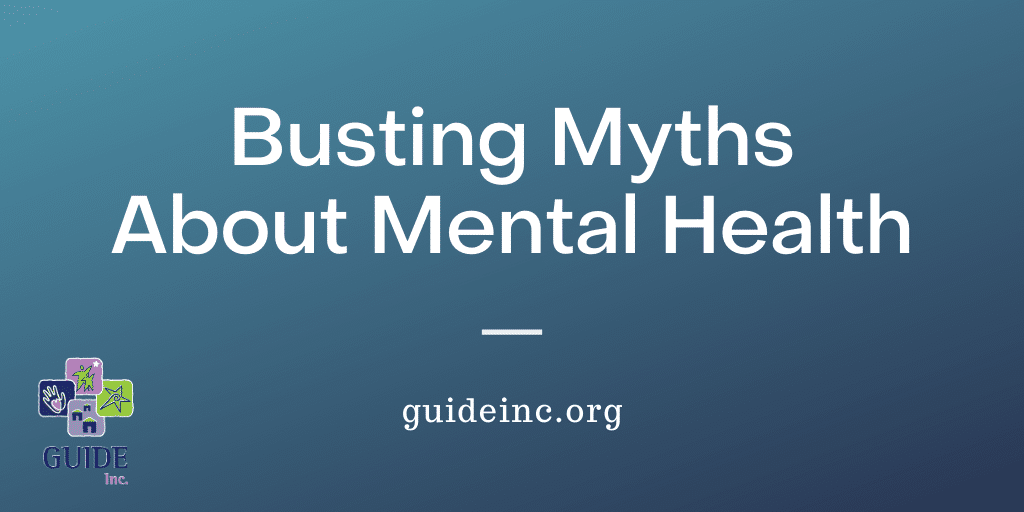In recent years, it has become more acceptable to talk about and advocate for mental health. This is exciting and desperately needed progress toward serving a community that has long felt excluded from society.
However, a lot of misinformation and old beliefs still exist that contribute to stigma around mental health issues. As long as this stigma persists, mental health will never get the full attention it deserves, and those who experience mental illnesses will go underserved.

Can you spot a mental health myth if you see one? In this post, we address five common myths and present the facts to help correct some common misconceptions.
Myth #1: Mental health issues are not very common.
Fact: Mental illnesses are very common. Nearly one in five U.S. adults live with a mental illness (52.9 million in 2020).1 More than 50% of individuals will be diagnosed with a mental illness or disorder at some point in their lifetime.2 1 in 25 Americans lives with a serious mental illness, such as schizophrenia, bipolar disorder or major depression.3
Myth #2: Children don’t experience mental health issues.
Fact: Mental health is important for everyone, including children. Half of all mental illness begins by the age of 14, but most cases go undetected and untreated.4 Common mental disorders that can be diagnosed in childhood are ADHD, anxiety and behavior disorders. Symptoms can change over time as a child grows and may include difficulties with how they play, learn, speak, act or handle emotions.5
Myth #3: People with mental health issues can make their symptoms go away if they just try harder.
Fact: Mental illnesses require treatment. Believing they will disappear just because we want them to can be damaging and defeating to individuals experiencing a mental health issue. Each person is different, and not all mental illnesses are equal. Mental health treatment often includes therapy, medications, lifestyle changes and specialized treatment – or a combination of those things. There are many treatment options available, and the right ones will vary based on the individual.6
Myth #4: Consuming alcohol can help people with mental illnesses relax and lower their stress levels.
Fact: Alcohol does not support good mental health. Though many people may drink in order to reduce feelings of stress, alcohol actually produces an increase in cortisol, also known as a stress hormone.7 In addition, alcohol is a depressant on the central nervous system, which is why it doesn’t provide the pick-me-up most people expect.8 Regular, heavy drinking interferes with chemicals in the brain that are vital for good mental health and can contribute to feelings of depression and anxiety and make stress harder to deal with over time.9
Myth #5: There’s nothing I can do to help my loved one with a mental illness.
Fact: Friends and family can make a big difference. Less than half of U.S. adults who have mental illnesses receive treatment. In fact, the average delay between onset of mental illness symptoms and treatment is 11 years.10 Family and friends can provide support by being present and offering to talk, encouraging the use of treatment services, helping to share facts about mental health and more. If you know someone who has an untreated mental illness, you can contact the Georgia Crisis and Access Line (1-800-715-4225) for immediate, free and confidential support 24/7 to individuals seeking routine or crisis services.
*Want to know more? Check out our Inspired to Make Healthy Choices newsletter on Mental Health Facts.*
Sources:
